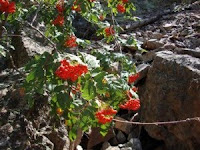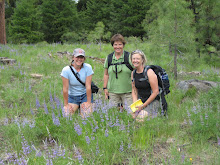
The common name of this Miscanthus family member really says it all. Native to the mountain regions of Japan, Miscanthus sinensis Var. purpurascens or Flame Grass sports reddish green foliage until it bursts into bright color in the fall. It grows 3 to 4 feet tall with taller 'blooms' appearing in the late summer. It's a warm season grass so it doesn't show signs of life until late spring after the soil has been consistently warmed. Miscanthus, in general, are hardy and adaptable plants, but do appreciate moderate water and well drained soil.




